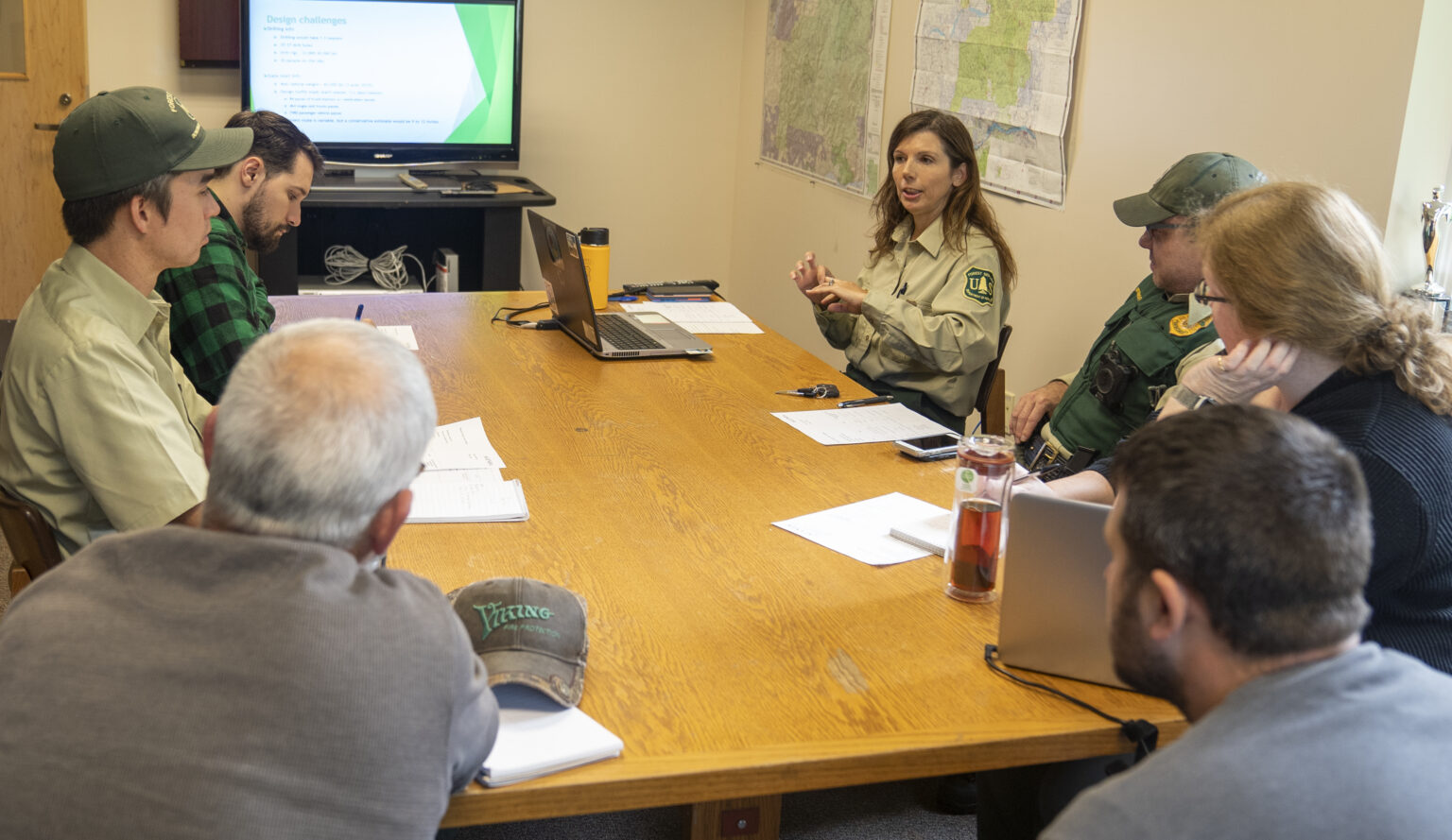Capital Chatter: Gov. Brown has hands full with two crises
Published 5:15 pm Thursday, September 3, 2020

- Capital Chatter square logo
Over breakfast recently, a longtime Oregon Democrat and political observer mused that Gov. Kate Brown’s muddled response to the pandemic — including the state’s Employment Department fiasco — could finally undo the politician he calls “Teflon Kate.”
Nope. Not yet, at least.
Trending
The Oregon Republican Party fell short in its latest attempt to recall Brown from office. But it will be intriguing to see whether Oregon voters treat the November general election as a referendum on Democrat Brown as well as Republican President Donald Trump.
It also will be interesting to see whether Brown alters her communication style and access as the pandemic goes on. She typically starts press conferences by reading scripted remarks, which contrasts with the extemporaneous styles of state Senate President Peter Courtney, D-Salem; House Speaker Tina Kotek, D-Portland; and others. At Portland press conferences earlier this year, Brown was overshadowed by Mayor Ted Wheeler in March and more recently by city Commissioner Jo Ann Hardesty.
In recent days, Brown has been governing via press release and official statements. It’s been two weeks since her last media availability. Previously, she had been holding those events almost weekly, although reporters had asked to have them even more often. The governor’s office announced Thursday she would have press availability at 11 a.m. Friday to discuss Oregon’s efforts to stop the spread of COVID-19, the ongoing protests in Portland, and Labor Day weekend health and safety.
The governor has her hands full with two crises. On Tuesday, she extended Oregon’s COVID-19 state of emergency for 60 more days, which was not a surprise. Meanwhile, the plan she announced Sunday to quell the protest violence in Portland didn’t fare well outside Portland.
She made the quizzical decision to unveil her plan without getting the support of such key participants as the Washington and Clackamas county sheriff’s offices and Gresham Police Department. After learning of the plan, those agencies responded that they would not dispatch their officers to help cover the protests.
Brown again will deploy additional Oregon State Police officers to Portland. Capt. Tim Fox said he didn’t know how many troopers would be sent, adding, “We do utilize troopers from all over the state from all divisions when responding to Portland.”
Trending
Urban vs. rural perspectives
The rest of Oregon has a love-hate relationship with the state’s largest city, and Portland’s current troubles accentuates those feelings. Rural residents fear what will happen when they temporarily lose their local state police coverage to Portland. Rural legislators remain incensed that Brown and metro Democrats were slow to decry the violence and, in part, blamed Trump’s rhetoric.
On Thursday afternoon, Brown joined Democratic politicians, community leaders and nearly 20 organizations in issuing a joint statement condemning the violence:
“As elected officials and community leaders, we are coming together to condemn the acts of violence in Portland that have occurred as thousands of Oregonians have been peacefully protesting for racial justice and police accountability.
“The violence must stop.
“There is no place for white supremacy or vigilantism in Oregon.
“All who perpetrate violent crimes must be held equally accountable.
“Together, we are committing ourselves to do the hard work that will bring meaningful change for racial justice and police reform.”
On Sunday, Brown had announced her “Unified Law Enforcement Plan to Protect Free Speech, Bring Violence to an End in Portland.”
“The right-wing group Patriot Prayer and self-proclaimed militia members drove into downtown Portland last night, armed and looking for a fight. Every Oregonian has the right to freely express their views without fear of deadly violence. I will not allow Patriot Prayer and armed white supremacists to bring more bloodshed to our streets,” Brown said in her Sunday statement.
“I will continue to work with local leaders, law enforcement and community leaders to bring all voices to the table to help end the nightly confrontations — but that will only come if we commit ourselves to do the hard work to bring about real change and racial justice.”
Rep. David Brock Smith, R-Port Orford, responded with a press release on Wednesday in which he said, “After last weekend’s violent riots in Portland turned deadly, Mayor Wheeler and Governor Brown’s response hit a new low in partisanship, choosing to blame the President rather than taking any responsibility for the lack of action and support of law enforcement in nearly 100 days of protests, many of which have turned into violent rioting and attacks on public safety personnel.”
Unemployment woes continue
As for the state’s delays in paying unemployment benefits , the Senate Interim Committee On Labor and Business held three days of online hearings this week, culminating Thursday with heart-wrenching testimony from out-of-work Oregonians who spoke of unanswered phone calls, botched paperwork and misleading advice from the state Employment Department.
Belindy Bonser, who lives in Jackson County, said her car had been repossessed while she has tried for nearly 15 weeks to get her benefits resolved.
“We are suffering. We are desperate and we need help and advocacy. Something has to happen. Someone has to act, because this unacceptable,” she told senators. “You guys were elected to represent us, and we need you more than any other time I think I’ve seen constituents needing their legislators.”
Robert Swan of Benton County said he has a doctorate in public policy but couldn’t figure out the byzantine unemployment system. It was only after he contacted state Rep. Shelly Boshart Davis, R-Tangent, that he was able to talk with Employment Department representatives.
“I still have trouble wrapping my head around this. It just is beyond me,” Swan said, adding that the Employment Department would be a good topic for a graduate school dissertation.
Others who testified also thanked legislators for interceding, including Sen. Tim Knopp, R-Bend, and Rep. Karin Power, D-Milwaukie.
However, Sen. Lynn Findley, R-Vale, said something is wrong when a state agency has to tell Oregonians to call their legislators in order to get help. Rep. Ron Noble, R-McMinnville, added that legislators practically had to beg the department on their constituents’ behalf.
The public phone-in process was complicated. A number of people who signed up to testify on Thursday did not call after all. The committee chair, Sen. Kathleen Taylor, D-Milwaukie, asked legislative staff to follow up with them, as written testimony can be submitted until 5 p.m. Friday through email: SLB.exhibits@oregonlegislature.gov.
The Senate committee will discuss the Employment Department again during Legislative Days, Sept. 21-25.
“My heart’s just broken,” Sen. Bill Hansell, R-Athena, said as Thursday’s hearing concluded. “The handful that testified today are representative of literally thousands and thousands of Oregonian across the state who continue to be hurting through no fault of their own.”
“I have been moved by this issue unlike any other constituent issue in almost 20 years in the Legislature,” said Sen. Mark Hass, D-Beaverton. During this week’s meetings, Hass extensively quizzed David Gerstenfeld, the department’s acting director, about the agency’s failure to modernize its computer system and processes despite having federal funding to do so.
“The circumstances that individuals are facing, it is heartbreaking,” Gerstenfeld said later Thursday during his weekly media availability. “It is a horrible situation and we certainly do recognize that.”
The agency constantly evaluates its processes, he said, but it was too soon to say whether this week’s legislative hearings would lead to operational changes.
Practically everyone keeps saying, “We’re all in this together.” Between Oregon’s state and local officials, that togetherness is not always evident.
“A one-size-fits-all approach will not work as well as community-based responses.”
— Association of Oregon Counties statement




